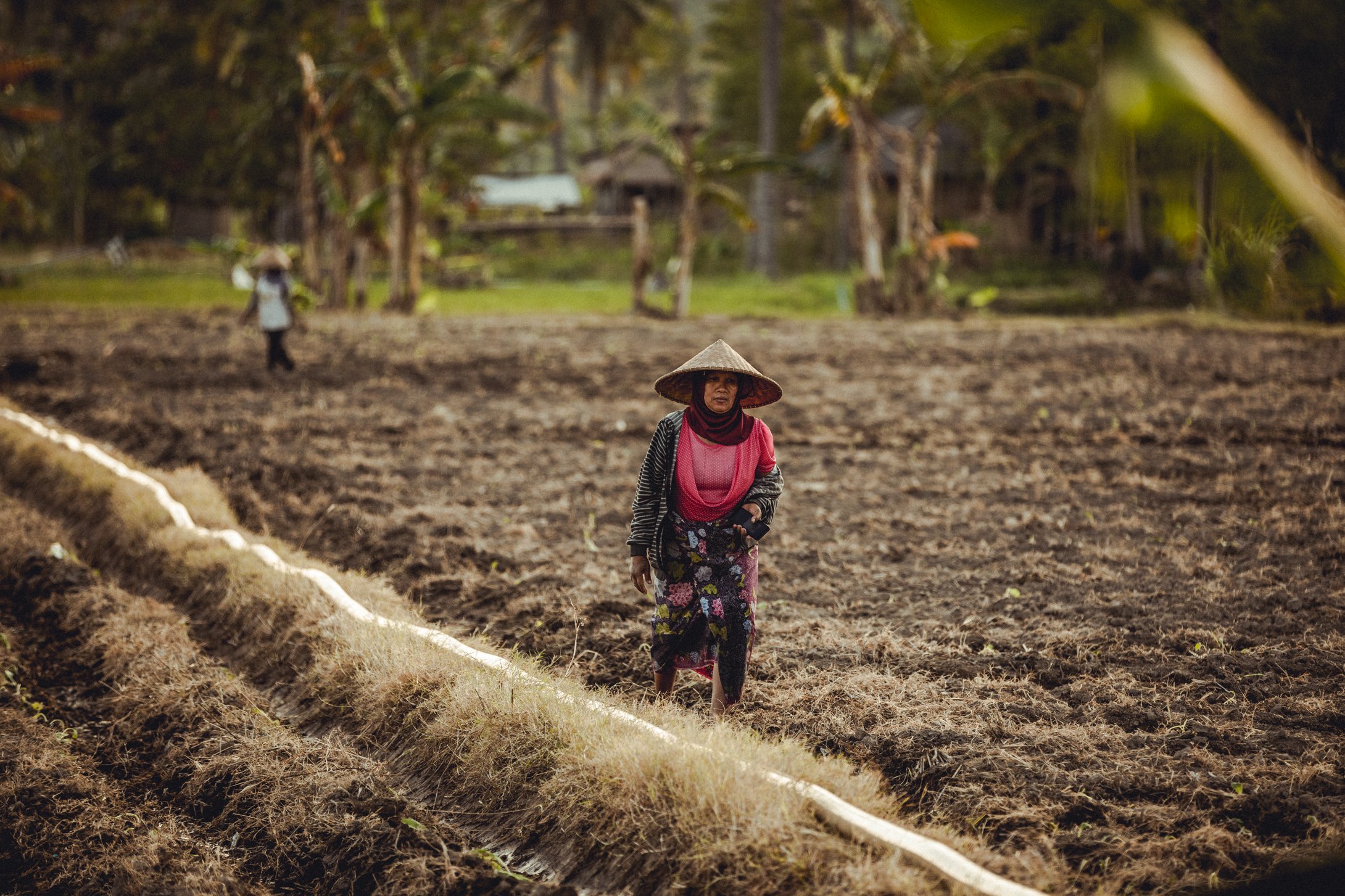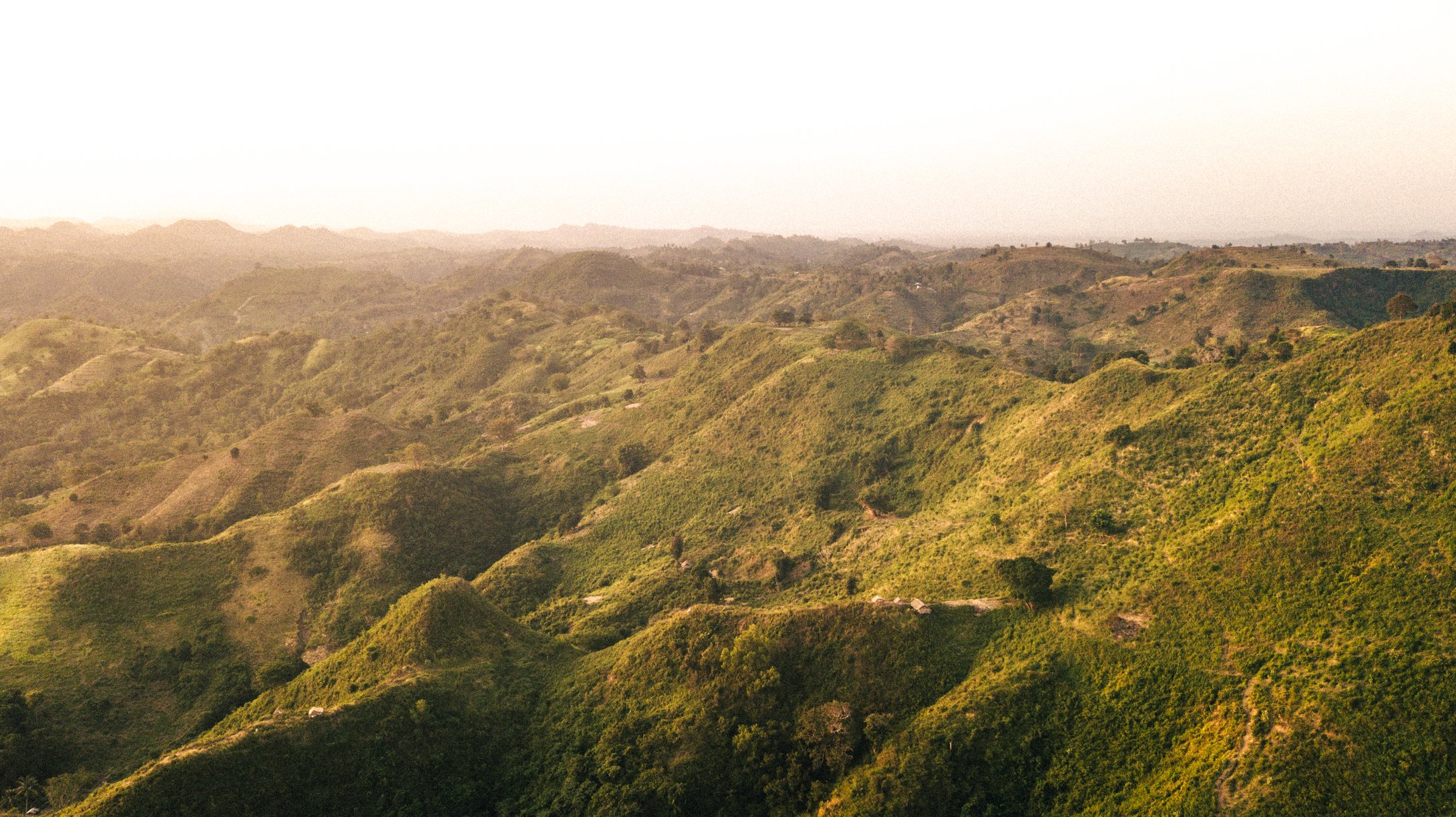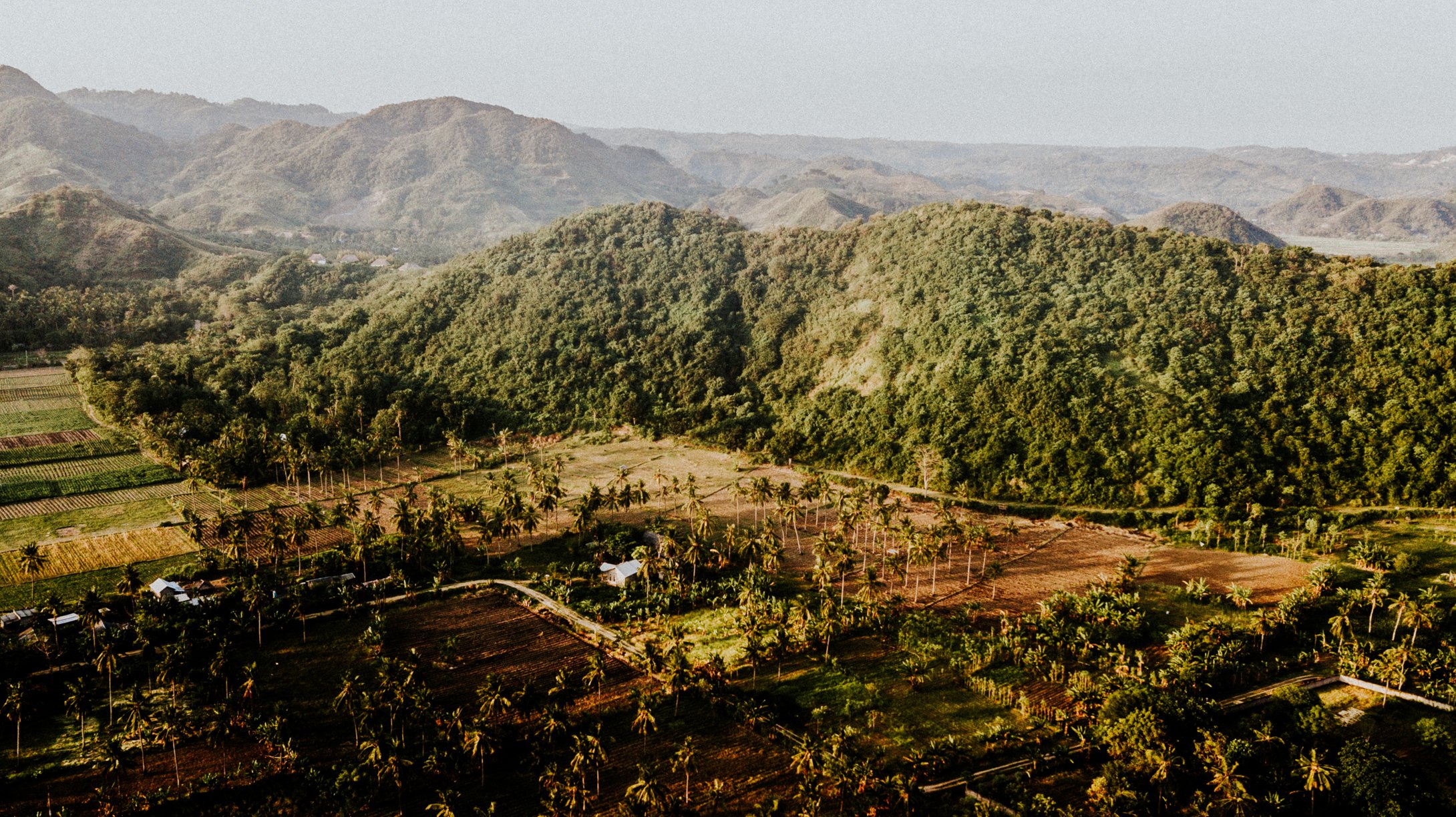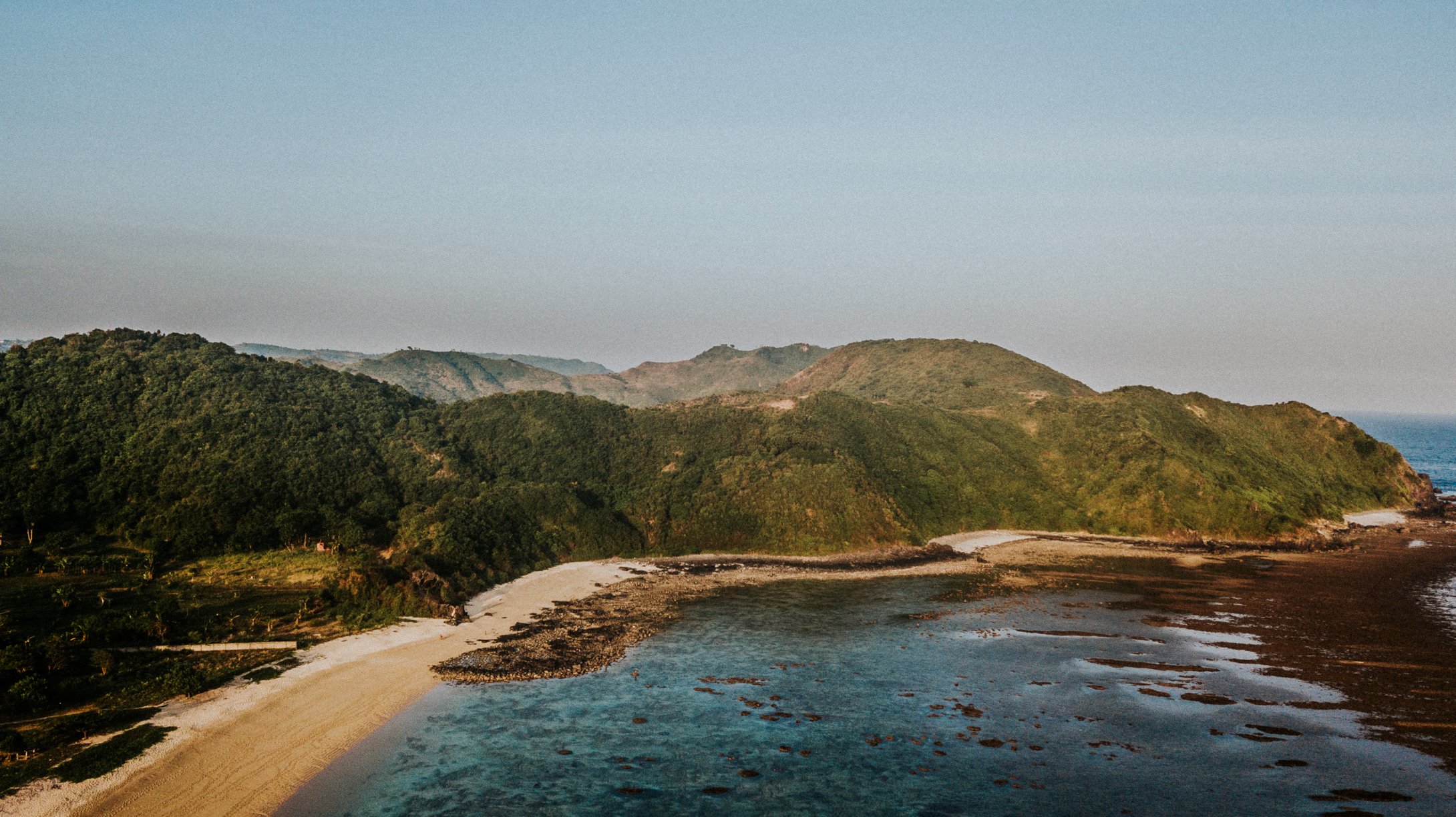
Lombok, Indonesia
Lombok is a tropical paradise that captures the essence of natural beauty and cultural charm. Located in the West Nusa Tenggara province, Lombok offers a captivating blend of pristine beaches, lush green landscapes, and majestic mountains. This enchanting island is renowned for its crystal-clear turquoise waters, vibrant coral reefs, and world-class surf breaks, making it a haven for water sports enthusiasts and beach lovers.
Beyond its breathtaking natural wonders, Lombok boasts a rich cultural heritage, with traditional Sasak villages, ancient temples, and vibrant markets that offer a glimpse into the local way of life. Whether it's exploring the picturesque waterfalls, hiking to the summit of Mount Rinjani, or immersing oneself in the warm hospitality of the locals, Lombok promises an unforgettable experience filled with adventure, relaxation, and exploration.
-
The Mandalika Project in Kuta, South Lombok, is a vast development spanning 1,175 hectares of coastal land. Once completed, it will boast over 16,000 hotel rooms, a waterpark, a 27-hole golf course, 1,500 villas, and an international-standard motor-racing circuit. With an estimated cost exceeding US$3 billion, the project is backed by the Indonesian Tourism Development Corporation (ITDC) and will feature renowned international chain resorts like Pullman, Paramount, Club Med, Royal Tulip, and Grand Mercure Hotel.
What sets the Mandalika Project apart is its commitment to sustainable development. With at least 51% of the land designated as "green space," the project aims to harmonize with nature and become a model for eco-friendly practices. By integrating solar power, water desalination plants, and tech-savvy greenhouses for efficient organic food production, the resort seeks to be self-supporting and environmentally conscious.
In addition to its green initiatives, the Mandalika Project will offer panoramic views, an electric light rail train, a cable car, a theme park, an eco-park, a waterpark, and a mangrove park. These attractions will enhance the resort's appeal as a prime destination for eco-tourism, showcasing the region's natural beauty while offering a range of exciting experiences.
-
Lombok has gained recognition as a world-class surf destination, attracting wave enthusiasts from around the globe. The island's surf scene is characterized by its pristine beaches, uncrowded lineups, and diverse range of breaks suitable for all skill levels. From the world class Desert Point with its long, barreling left-hand waves to the powerful and challenging breaks of Ekas and Grupuk, Lombok offers a variety of surf spots to cater to every surfer's preferences. Whether you're a seasoned pro or a beginner looking to catch your first wave, Lombok's warm waters and consistent swells provide the ideal playground for an exhilarating surf experience. With a laid-back atmosphere, breathtaking scenery, and a vibrant surf community, Lombok has firmly established itself as a must-visit destination for surfers seeking adventure, excitement, and unforgettable rides.
-
Lombok's captivating natural beauty and rich cultural offerings have made it a sought-after destination for both expatriates and tourists. As the number of families settling on the island continues to rise, the demand for quality education has grown significantly. Thankfully, Lombok is home to several exceptional international schools that cater to the needs of these families, ensuring their children receive a top-notch education. Among the notable institutions is the Lombok International School, which offers a comprehensive and enriching learning experience designed to prepare students for success in a globalized world.
One such school is the Mandalika Intercultural School (MIS), established in 2017. MIS follows a progressive curriculum and welcomes students of all ages, from early childhood to high school. The school takes pride in its innovative and personalized approach to education, deeply rooted in the local community.
Lombok is also home to other esteemed international schools, such as Lombok International School (LIS) located in Mataram. LIS is a co-educational day school offering an international curriculum for students from kindergarten to grade 12. Accredited by the globally recognized Western Association of Schools and Colleges (WASC), LIS is committed to providing a well-rounded education that encompasses academics, arts, athletics, and community service.
With Lombok's growing expatriate community, the presence of international schools like MIS, LIS, and the upcoming Mandala Learning Centre has become increasingly significant. These schools offer a familiar education system and language of instruction, facilitating the smooth transition for relocating families. Moreover, their diverse student bodies foster cultural understanding and global awareness, nurturing well-rounded individuals prepared to thrive in an interconnected world.
-
The expat community in Lombok, Indonesia, has been steadily growing in recent years. Lombok's stunning natural beauty, serene beaches, and unique cultural offerings have attracted expats from around the world seeking a more relaxed and idyllic lifestyle.
Diversity: The expat community in Lombok is diverse, comprising individuals from various countries and backgrounds. Expats from Western countries, such as Australia, Europe, and the United States, are commonly found in Lombok. Additionally, there are expats from neighboring Southeast Asian countries and other parts of the world.
Lifestyle: Lombok offers a more tranquil and laid-back lifestyle compared to its bustling neighbor, Bali. The expat community in Lombok appreciates the slower pace of life, pristine beaches, and the island's natural beauty. Many expats in Lombok are drawn to outdoor activities such as surfing, diving, and exploring the island's lush landscapes.
Business and Employment: Some expats in Lombok are entrepreneurs who have established businesses in various sectors, including hospitality, real estate, restaurants, and tourism-related services. Others may find employment opportunities in the tourism industry, teaching English, or working remotely for international companies.
Community Events and Networks: The expat community in Lombok organizes social events, gatherings, and networking opportunities to foster a sense of camaraderie among like-minded individuals. These events provide a platform for expats to connect, share experiences, and build friendships.
Support and Integration: Expats in Lombok often provide support and assistance to newcomers, helping them navigate the local culture, language, and practical aspects of living on the island. Expatriate groups and online communities offer valuable resources for information, advice, and assistance.
Community Initiatives: The expat community in Lombok is actively involved in community initiatives and projects aimed at contributing to the local society. These initiatives can include environmental conservation efforts, education support for local communities, and sustainable development projects.
The expat community in Lombok enjoys a close-knit and welcoming environment, where individuals can embrace the island's natural beauty, immerse themselves in the local culture, and forge lasting connections with both expats and locals alike.
-
The local community in Lombok is diverse, vibrant, and deeply connected to the island's rich cultural heritage. Lombok is home to several indigenous Sasak communities, who form the majority of the local population.
Sasak Culture: The Sasak people are the predominant ethnic group in Lombok and have a distinct culture and traditions. They have a unique language, music, dance, and cuisine that reflect their heritage. The local community takes pride in preserving and showcasing their Sasak cultural identity through various cultural festivals, rituals, and arts.
Traditional Village Life: Lombok is dotted with traditional Sasak villages where locals live in traditional-style houses and practice age-old customs. These villages offer visitors a glimpse into traditional village life, where farming, weaving, and pottery making are still important activities. Visitors can engage with the local community, learn about their customs, and appreciate their craftsmanship.
Islam: The majority of the local community in Lombok practices Islam, which plays a significant role in their daily lives and cultural practices. Mosques are an integral part of the island's landscape, and religious festivals and observances are important events for the local community.
Community Spirit: The local community in Lombok is known for its strong sense of community and hospitality. Locals are generally warm, welcoming, and eager to share their culture and traditions with visitors. Visitors often have the opportunity to participate in community activities, such as traditional ceremonies, cultural performances, or local markets.
Traditional Industries: Agriculture, fishing, and handicrafts are important industries for the local community. Rice cultivation, tobacco farming, and seaweed farming are some of the agricultural practices in Lombok. Fishing communities thrive along the coastal areas, contributing to the local economy. Handicrafts such as weaving, pottery, and traditional silverwork are also traditional skills passed down through generations.
Visitors to Lombok have the opportunity to engage with the local community, learn about their customs and traditions, and contribute to the local economy through responsible and sustainable tourism practices. Interacting with the local community provides a deeper understanding of Lombok's culture and fosters a meaningful connection with the island and its people.
-
Over the past decade, Lombok has experienced significant economic growth, positioning itself as a promising destination for investment and development. The island's tourism sector has been a driving force behind this growth, with an influx of both domestic and international visitors. The construction of new hotels, resorts, and tourism-related infrastructure has created job opportunities and stimulated economic activity.
Additionally, Lombok has seen advancements in other sectors such as agriculture, manufacturing, and services, contributing to its overall economic expansion. Improved connectivity through the expansion of airports and transportation networks has facilitated trade and tourism, further boosting the economy.
The efforts to diversify the economy beyond tourism have also yielded positive results, attracting investments in areas like renewable energy, agriculture, and technology.












